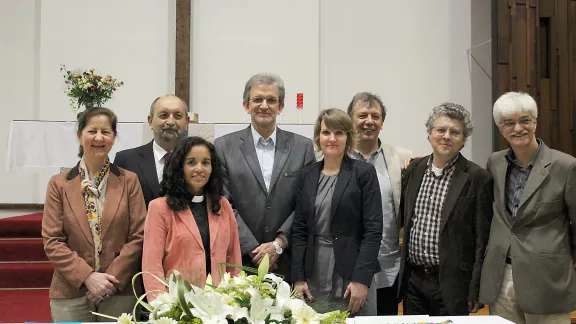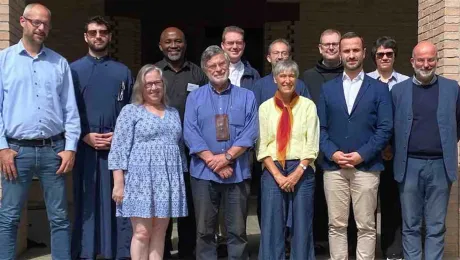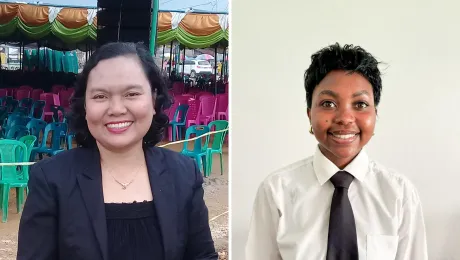
LAC officials at Sustainability Institute launch. Photo: Dilceu Witzke
LWF Collaborates with Churches to Develop Curriculum
PORTO ALEGRE, Brazil/GENEVA, 24 October (LWI) – The Lutheran World Federation (LWF) member churches in Latin America and the Caribbean (LAC) have launched an institute that will enhance resources that strengthen the churches’ presence and service to society in the region.
The LAC Sustainability Institute was inaugurated on 24 October at the Church of Reconciliation in Porto Alegre, Brazil.
The LWF Department for Mission and Development (DMD) LAC desk collaborates with the Evangelical Church of the Lutheran Confession in Brazil (IECLB) in developing the institute at the Faculdades EST [Higher School of Theology] in São Leopoldo.
The move comes following talks among LWF member church leaders in Managua, Nicaragua, earlier this year, which indicated need for such a school to promote the sustainability of churches as they attempt to strengthen their service to society.
The Sustainability Institute will work with civil society, the business sector and state organizations to develop programs. Discussions at Managua focused on the challenges imposed on the churches by the complexities of the new economic, social, political and religious reality in the region.
IECLB president Rev. Dr Nestor Friedrich underlined the value of the institute, saying it is an “important tool and space for the mission that God entrusts to the church as it is endowed with qualified persons, leaders, and ministers.”
The Sustainability Institute builds on the spirit of the document, “Linking Theological Research and Sustainability,” which was presented at Managua by Mr Gustavo Driau of the United Evangelical Lutheran Church (IELU) in Argentina. It is connected to the Good Governance and Transformative Leadership Program in DMD.
“During the last three months, the planning team has been developing content, methodologies, activities and the elaboration of a draft founding document of the institute,” said Rev. Dr Patricia Cuyatti, LWF area secretary for LAC.
The team includes Driau, who is the regional coordinator of the sustainability program; Miltom de Oliveira, reference person from the IECLB sustainability program; Faculdades EST Provost - Chancellor Rev. Dr Valério Schaper; and Déborah Conrad, a catechist who serves as IECLB formation secretary.
The institute’s curriculum, which is being developed in consultation with member churches in the LAC region, considers the sustainability and spirituality emphases and is grounded in contextual faith formation.
Cuyatti expressed gratitude for the support, reflection and prayers that have been received from member church leaders throughout the LAC region as the Sustainability Institute has been taking shape.
“In a clear demonstration of what it means to be part of the Lutheran communion, the Sustainability Institute is a courageous commitment to continue searching for new paths that contextually respond to the needs of member churches in their own realities,” Cuyatti emphasized.


